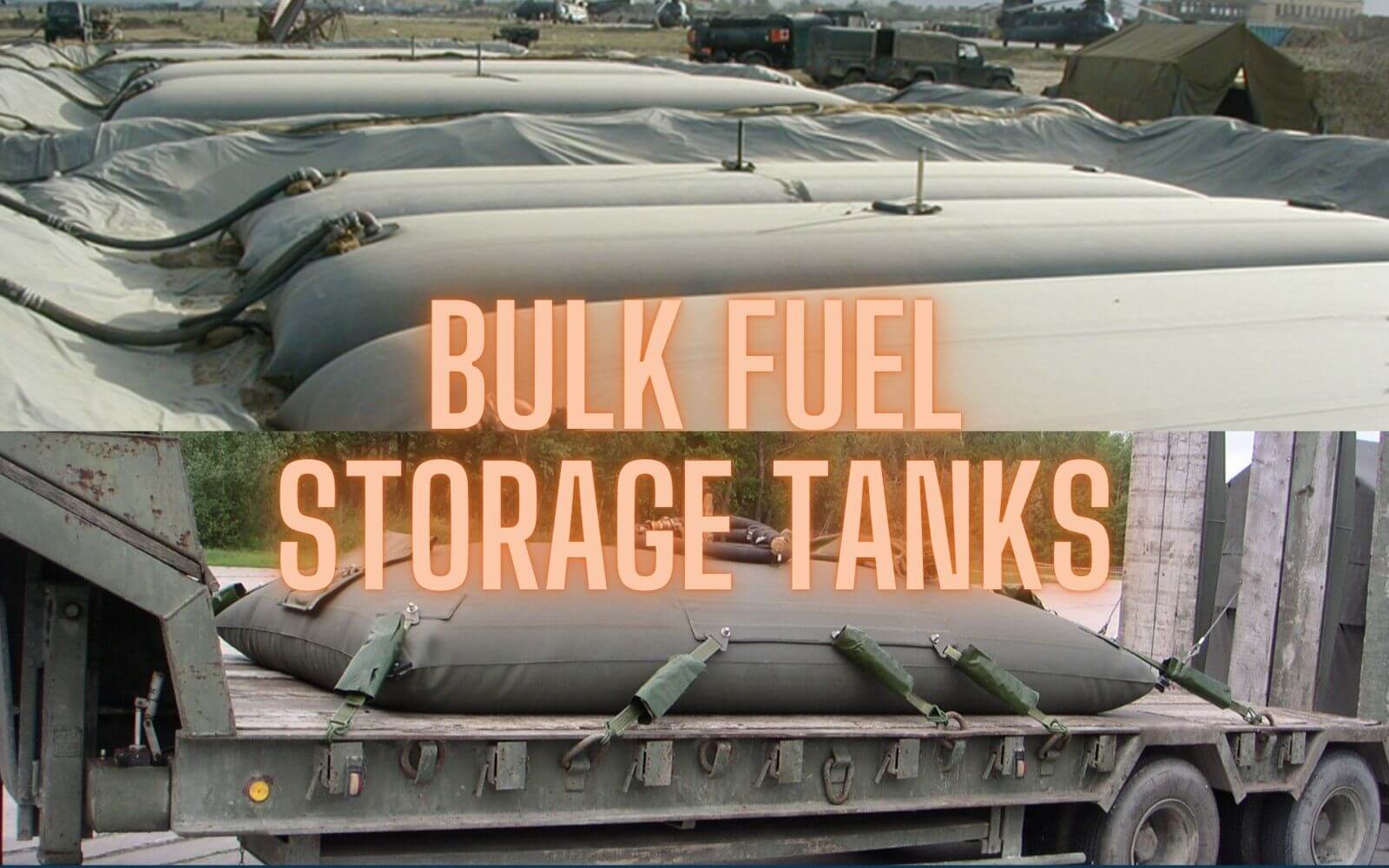BULK FUEL STORAGE TANKS
Fuel is the power source of industries, transportation, and sometimes the emergency services. A reliable and efficient fuel supply is critical for production process, military organizations, and humanitarian response. Enter bulk fuel storage tanks, which quietly store fuel and safeguard fuel until it’s needed.
What Are Flexible Bulk Fuel Storage Tanks?
Flexible fuel tanks, also known as collapsible fuel bladders, are innovative and reliable solutions for storing fuel. These tanks are like the chameleons of the fuel storage world. They adapt by the flow of the fuel to fit the surroundings. Easily expand when filled, and fold to take away when empty. Let’s explore the features of the tanks, what the benefits, and where to apply.
Features of Flexible Fuel Tanks:
Material Magic: Flexible tanks are made from durable and fuel-compatible fabrics. These fabrics are tough, UV-resistance, and designed to work in extreme conditions.
Leak-Tight Wonder: Say goodbye to fuel odors and soil erosion. Flexible fuel bladders are leak-tight, high-quality material and reinforced welding process guarantee no leakage, ensuring that not a drop of precious fuel escapes.
Lightweight and Compact: When empty, these tanks fold down to small size which is little part of the its loading capacity, like 1000L tank, packing size is only 0.06m3. Easy to transport and store, they’re perfect for temporary setups or emergency deployments.
Efficient Solution: When we talk about the high-efficiency of fuel bladders, indicate 2 factors. Saving money and shorten times on deployment. Compare with the rigid tanks, flexible fuel tanks can save a lot of money of tanks, shipping cost and installation. And the bladders can setup quickly by 3 steps: unfold, filled, and done.
Customization: Compare with other fuel storage tanks, fuel bladder is flexible. Customizing shape, size and fittings.
- Shape: the pillow shape is the most popular type, adapting the space by flow to fit the limited space. Sometimes, the pillow bladder can’t meet the specific space, then customized shape works. The shape can be customized based on the drawing.
- Size: There have standard sizes of fuel tanks for choose, but if they can’t meet your requirement, contact supplier to customize the size, based on the dimension required.
- Fittings: the fittings needed is different for applying in different working places. Like the fuel tanks for transportation and the fuel tanks for industrial fuel supply, the fitting needs is different.
Field Fuel Storage:
Picture a remote construction site or an off-grid generator, some similar situations with remote project sites. Flexible tanks are a reliable fuel storage and transportation solution where traditional tanks can’t reach.
Transporting Petroleum Products:
Whether by land, sea, or air, these tanks working as a reliable containment ensure that fuel reaches its destination safely.
Emergency Relief Efforts:
When disaster strikes or other disaster happened, fuel supply is vital. Only fuel comes, the energy can resume. Flexible tanks step up quickly and make fast deployment. They’re the silent heroes in relief camps, powering generators and vehicles.
Cleaning, Repair, or Launching of Fuel Storage: Need to clean or repair your main fuel tank? Flexible tanks act as transitive temporary backups tank during maintenance, also called repair fuel tank solution.
Cost-Effective: Compared to metal or rigid plastic tanks, flexible tanks are much more profitable. Their lightweight design also saves on shipping costs and installation labor charges.
Environmental Friendliness: No spills, no leaks, and no harm to the soil. Mother Earth approves!
Easy Installation and Monitoring: Above ground and accessible, these tanks are a breeze to install, inspect, and maintain.
Next time you see a flexible fuel tank, appreciate its versatility, besides the fuel bladder, flexible tanks can also use for wastewater, drinking water and chemical liquids. It’s not just a container; it works as a mandatory roles in industries, emergency response, and everyday operations. So, here’s to the unsung heroes—may they keep our engines running and our lights shining!








